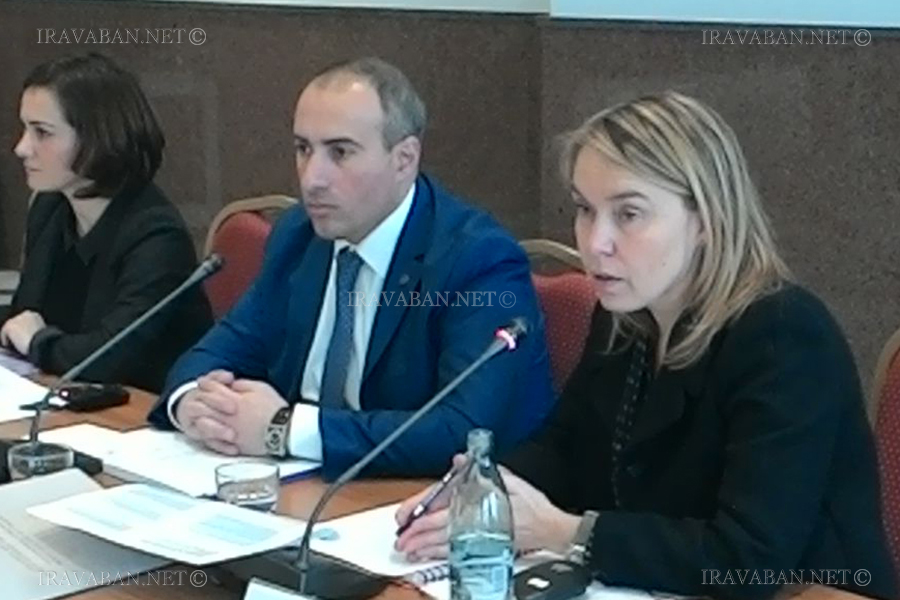Today, on 17 February, the monitoring results of the country members of the Organization for Economic Cooperation and Development (OECD) Anti-Corruption Network for Eastern Europe and Central Asia were presented in Yerevan. The members of the group referred to the level of corruption in Armenia as well.
Representative of the monitoring group Olga Savran referred to the implemented in Armenia Anti-Corruption strategy said, “The previous Anti-Corruption Strategy of the RA was not well implemented, and the implementation of that previous strategy has not had a major impact on the reduction of corruption. So we try to do so that the next strategy shall have a result so that it is not just a piece of paper. But more importantly, we believe when it is written on the paper, the government should take full responsibility for its implementation.”
She also referred to the Anti-Corruption Council, stressing that it should be the “driving force” of the strategy. “It was quite weak in the past. We insist that there should be a permanent policy. We want the government to have a strong mechanism, which will be implementing the strategy programs. We say that a lot of activities of the previous strategy were carried out. But the problem is that all these efforts have not had a significant impact on the reduction of corruption,” said the expert.”
Iravaban.net asked the expert’s opinion about the fact that only 2 CSO representatives should be included in the Council, as in such case the public voice will not be heard. The expert said, “We have an instruction for the government, which says, to ensure wider participation of NGOs in the Council. In fact, we did not agree that there should be electoral process. However, we will consider as a positive side a broader participation of NGOs and non-governmental subjects in the Council,” she emphasized.
We asked about the terms of approval of the strategy. Olga Savran answered, “When we were here in July, there was an intention to accept it in September. In our report we recommended not to hurry. Currently there are discussions, which are fairly complicated. Now we are saying that you should hurry, we want to see the strategy, this country has no anti-corruption strategy for 2.5 years.”
In his reply to Iravaban.net about the involvement of NGOs, one of the speakers, the Deputy Minister of Justice Suren Krmoyan said, “The draft strategy is ready; it was sent to the opinion of our colleagues and was discussed in the Public Council at the Ministry of Justice. We also expect to get the opinions of NGOs. The Council has representatives from many non-governmental structures at least 7 representative. The Government is the political responsible of this Anti-Corruption Strategy, the decisions will be adopted by consensus with the NGO and other non-governmental sector representatives,” Mr. Krmoyan said.
Another expert, Rusudan Mikelidze represented the monitoring results and indicated that the country has significant achievements in legislative sphere, “But more important is that Armenia’s achieved progress in legislative field is reflected in the practice as well. We have noted in the report that Armenia has fulfilled most of the recommendations made, except for one important recommendation, which refers to calling the legal persons to liability. Most importantly, we want to see the legislation practical application,” she said.
The expert spoke about the issue of the independence of the judiciary as well. “On chapter of the report refers to courts. At this point, we are very critical to the RA government. We learned that there are judges who are trying to follow the instructions in the upper court judges. In addition they are affected by the Executive as well. We also offer that the judge is not appointed by the president; there should be a vote based on an objective and transparent criteria,” Rusudan Mikelidze















